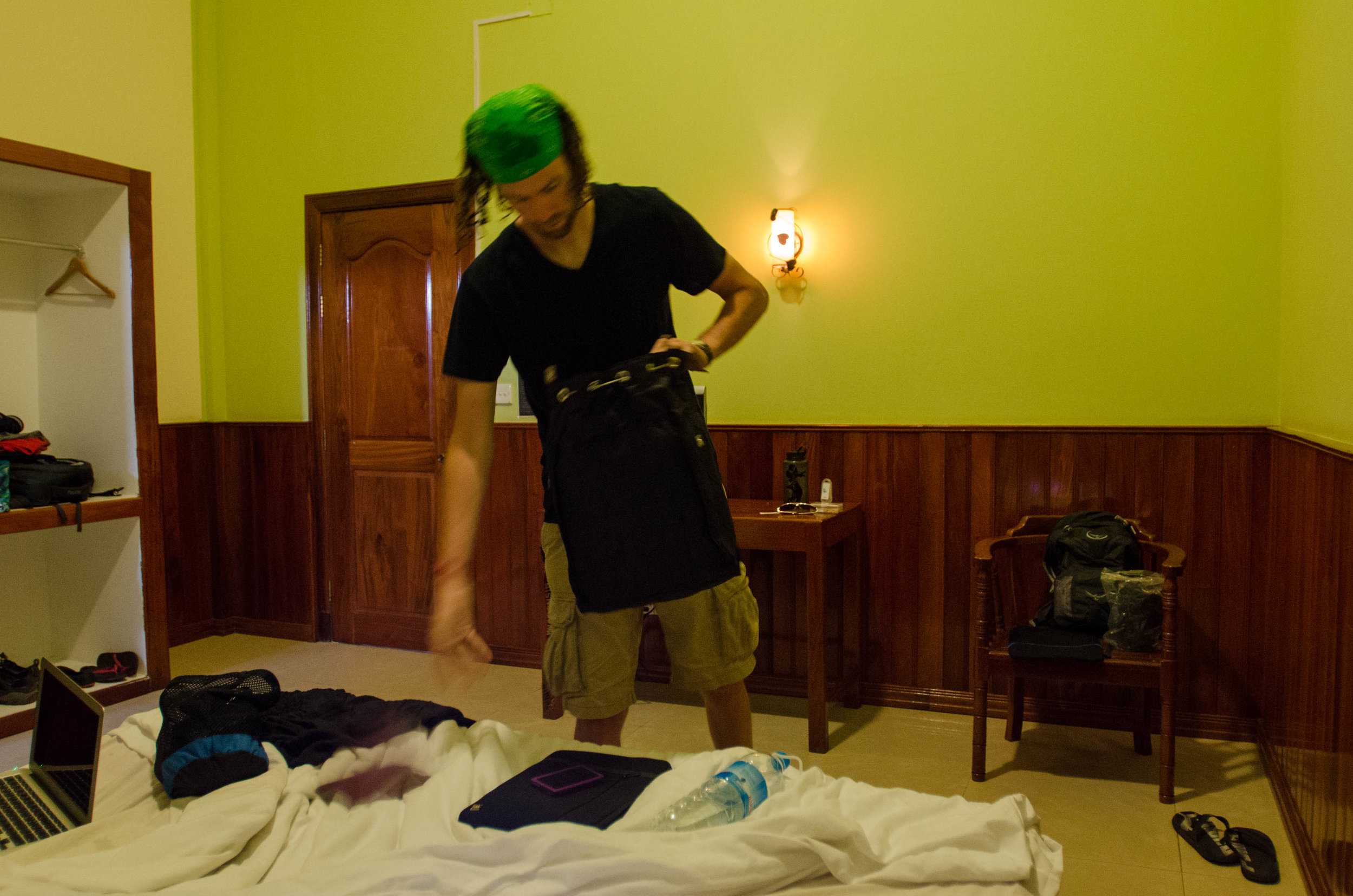You would probably think that the day we would go to Angkor Wat would not begin with three hours working in a coffee shop, but it did. We spent the morning and a bit of the early afternoon working, instead of waking up to see the sunrise over Angkor. Our friends (and as was the case in the past) said that there were SO. MANY. TOURISTS. there for sunrise, it didn't sound like a pleasant experience to me at all. So we left for Angkor Wat somewhere between 2 and 3 in the afternoon and casually made our way through the temple. We stopped often to sit and take in the view or people watch. We climbed up to the top only when there was no line. And then we got kicked out at closing and we were able to just as casually make our way out with much less of a crowd around. Fact: Temples are much better sans tourists (especially of the group variety). Also, a quiet sunset is much more lovely than a loud sunrise.

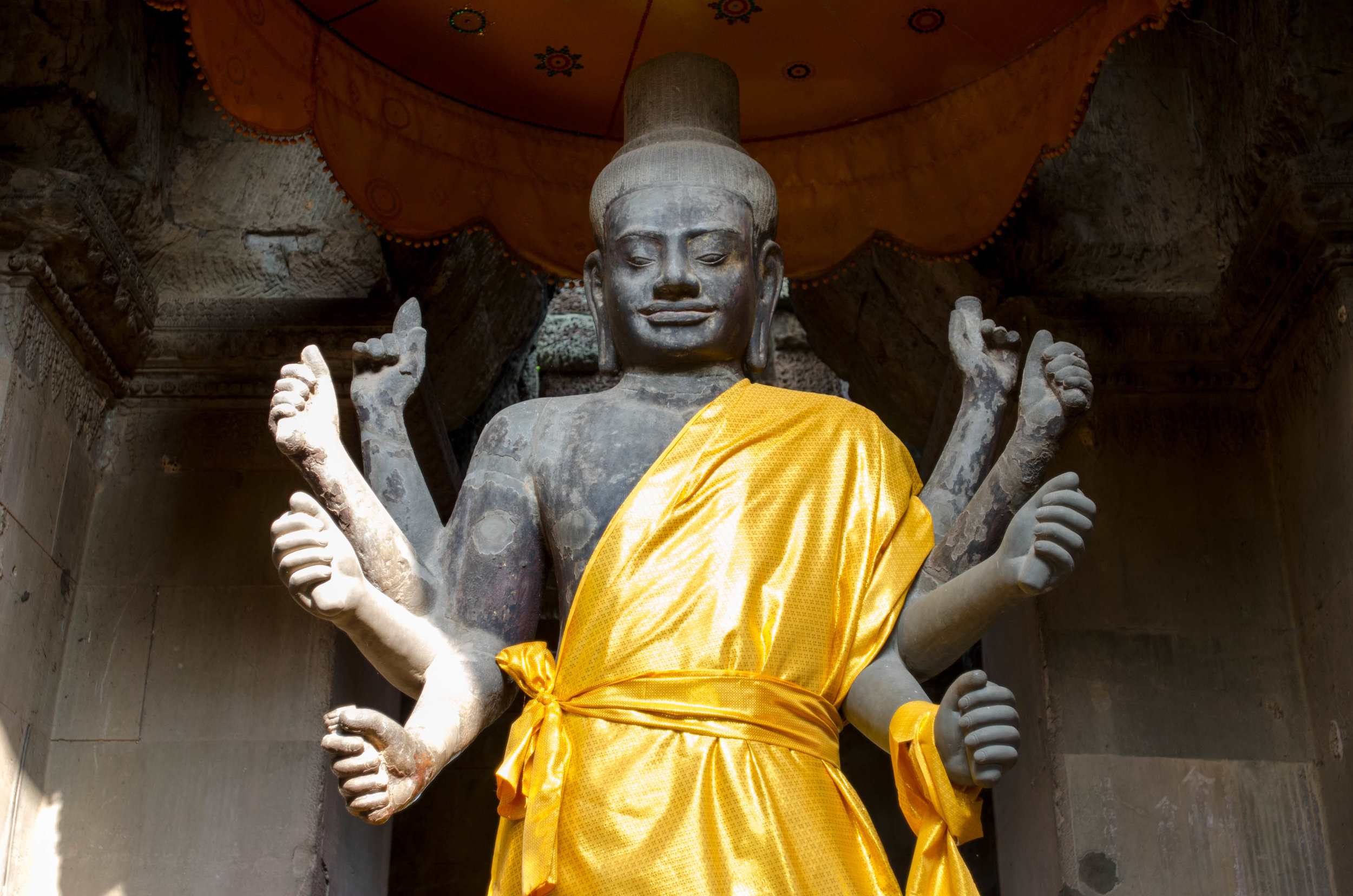
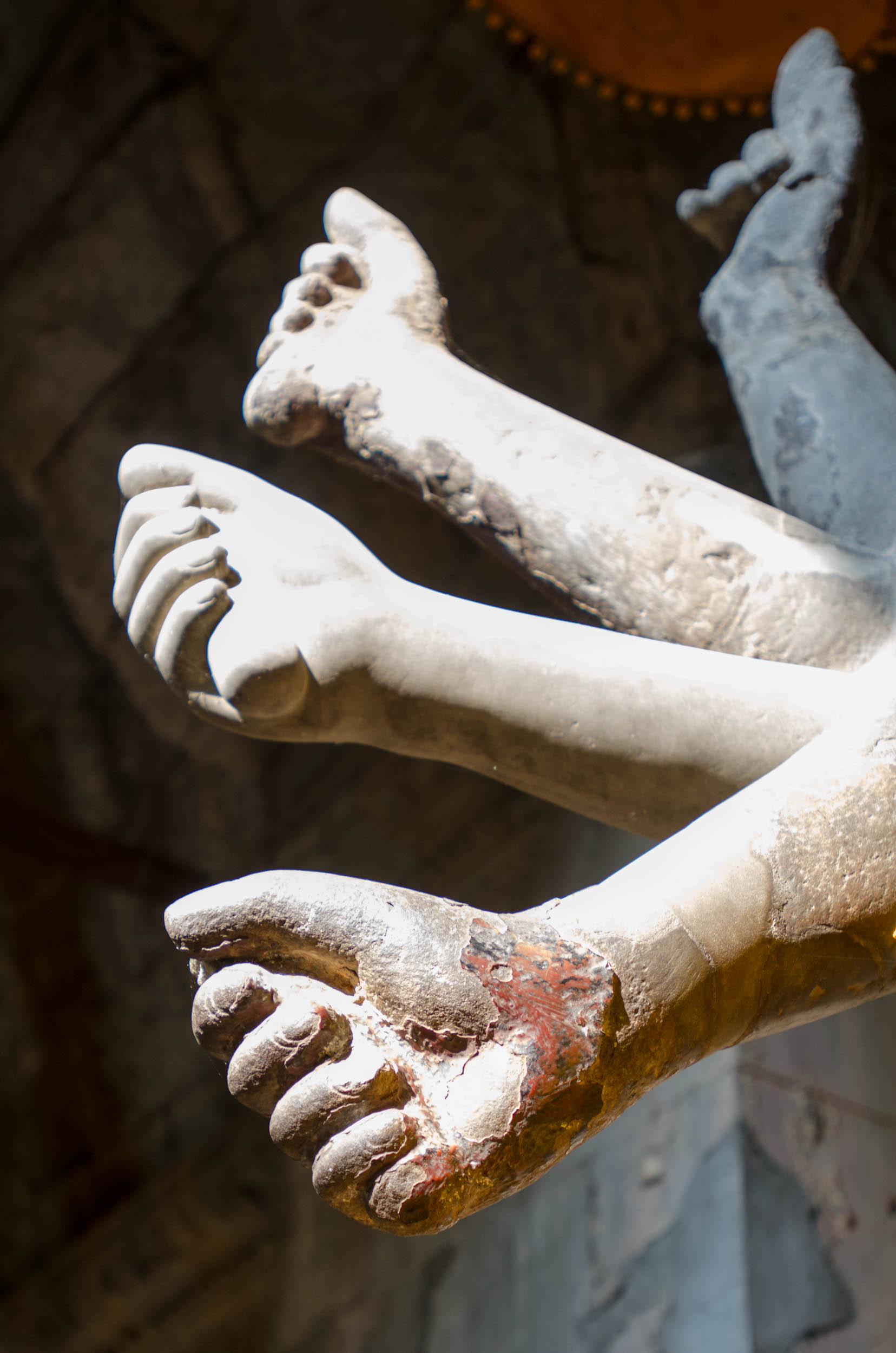

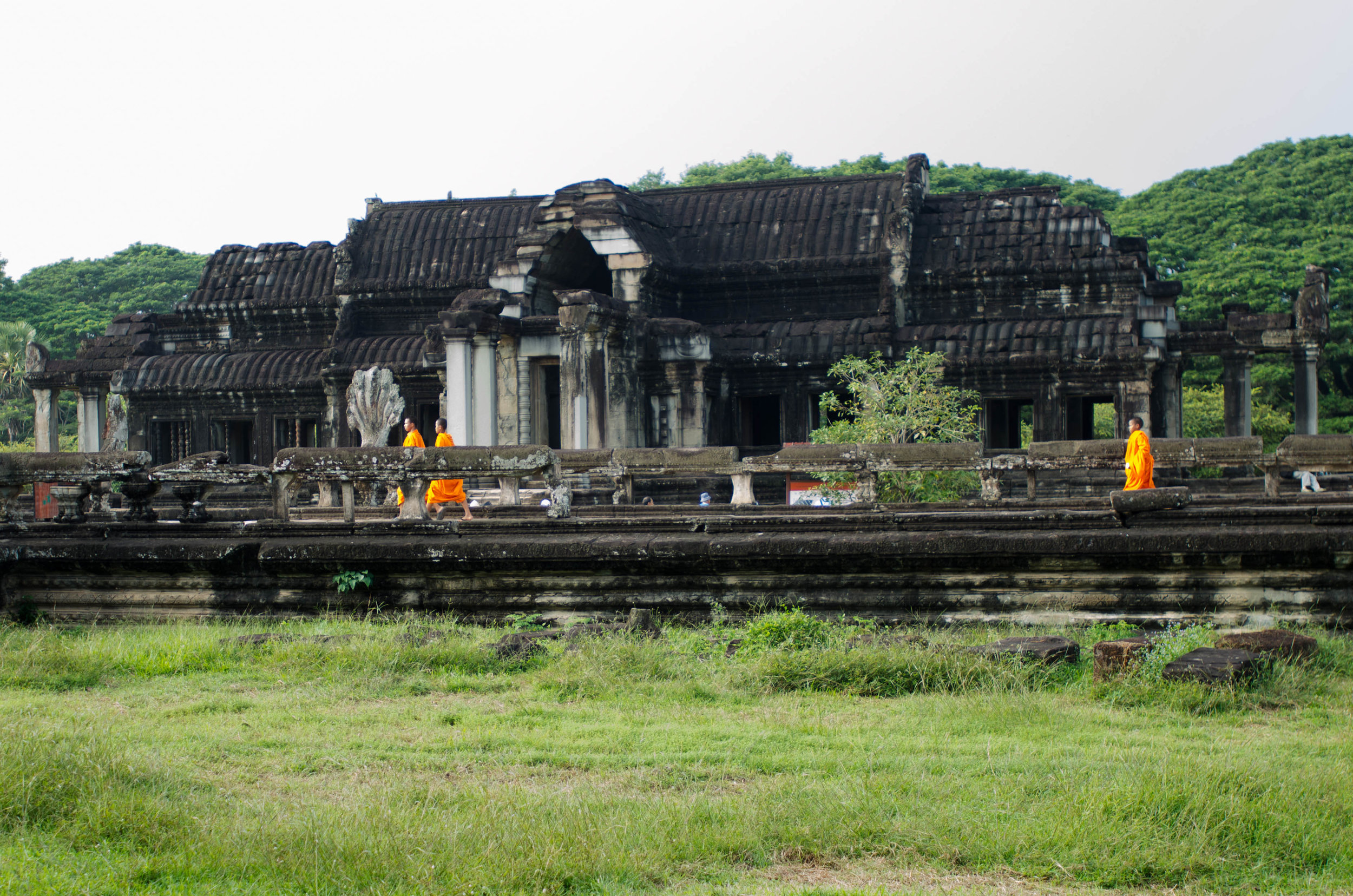
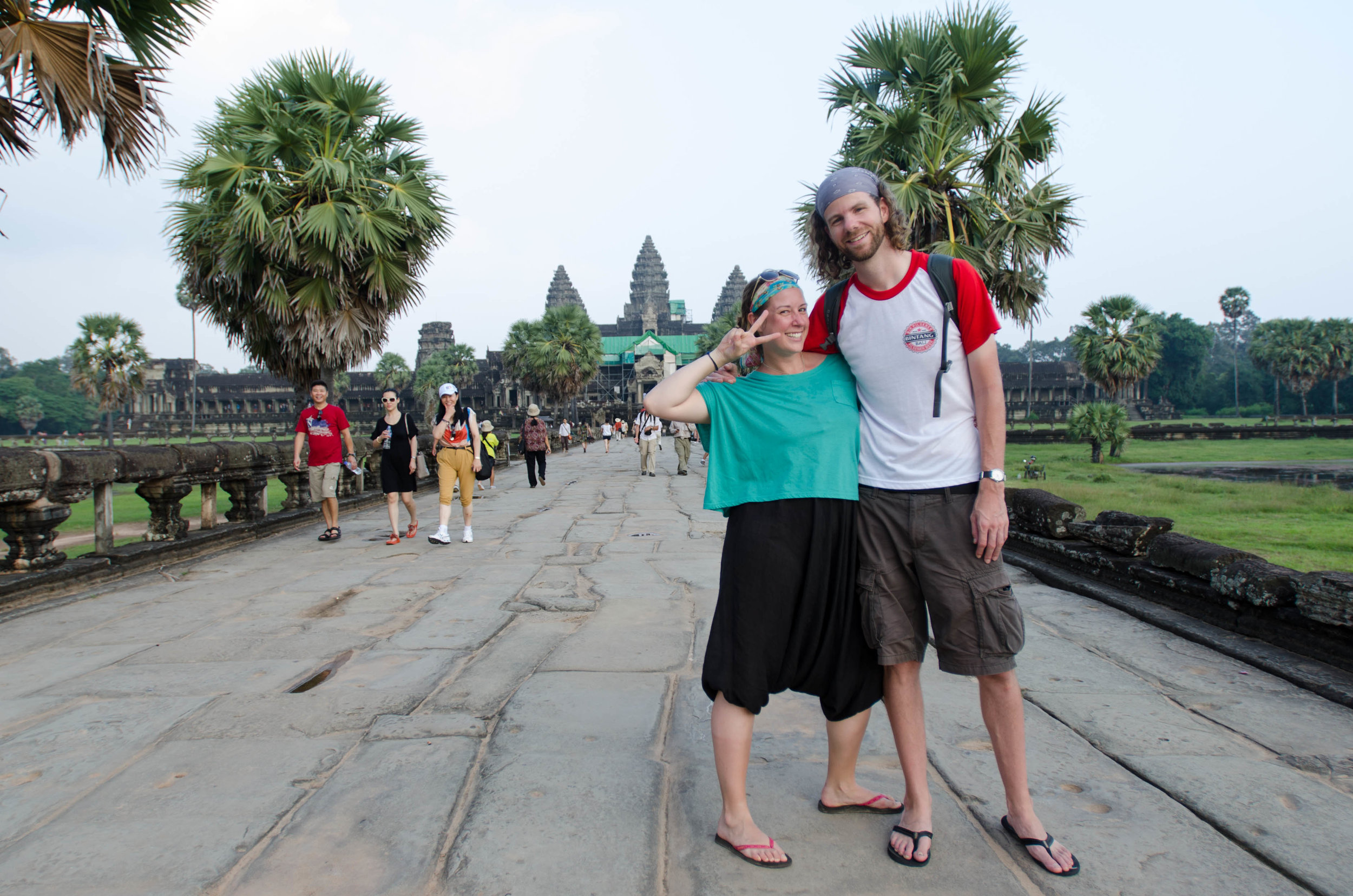
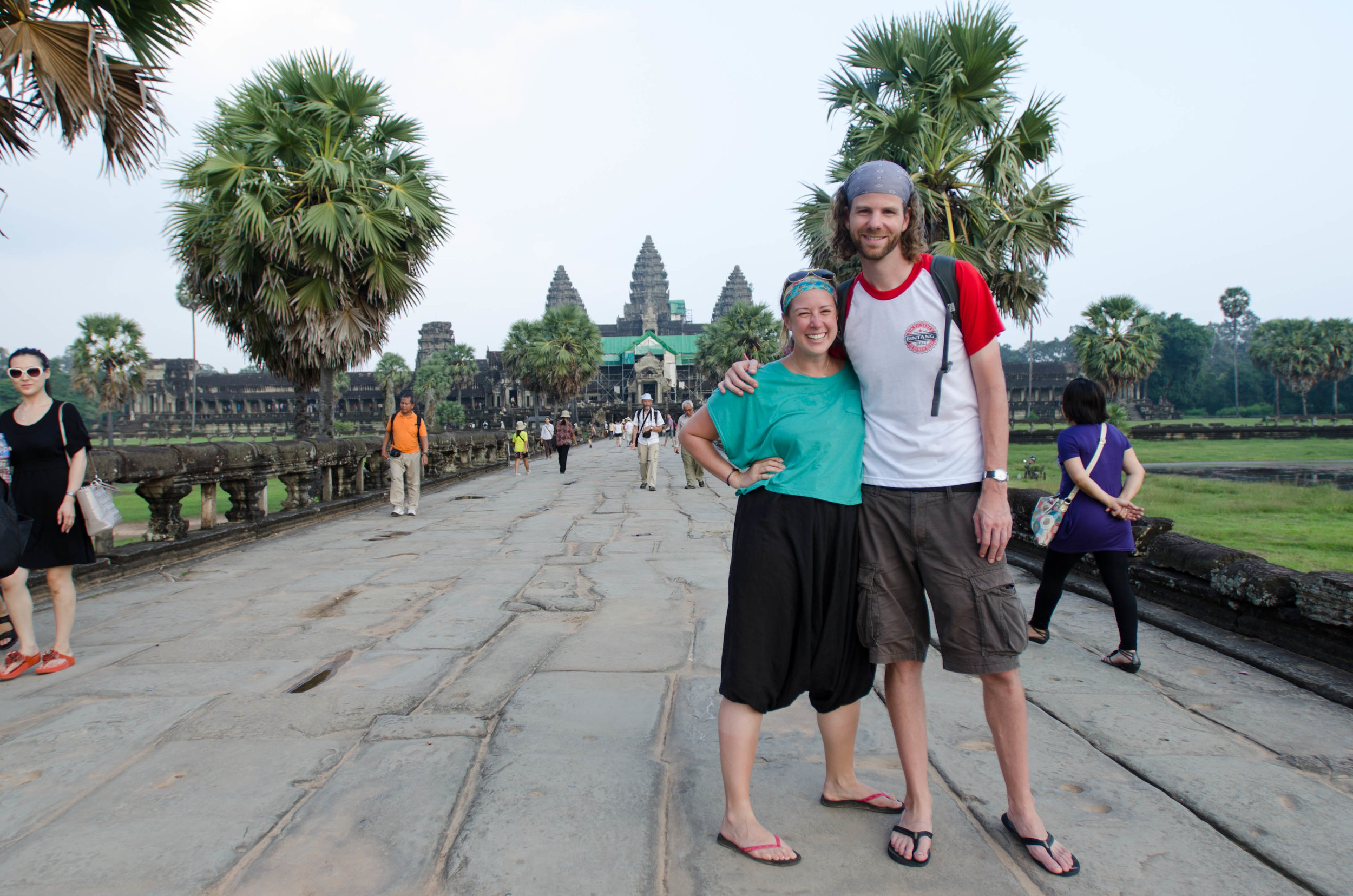
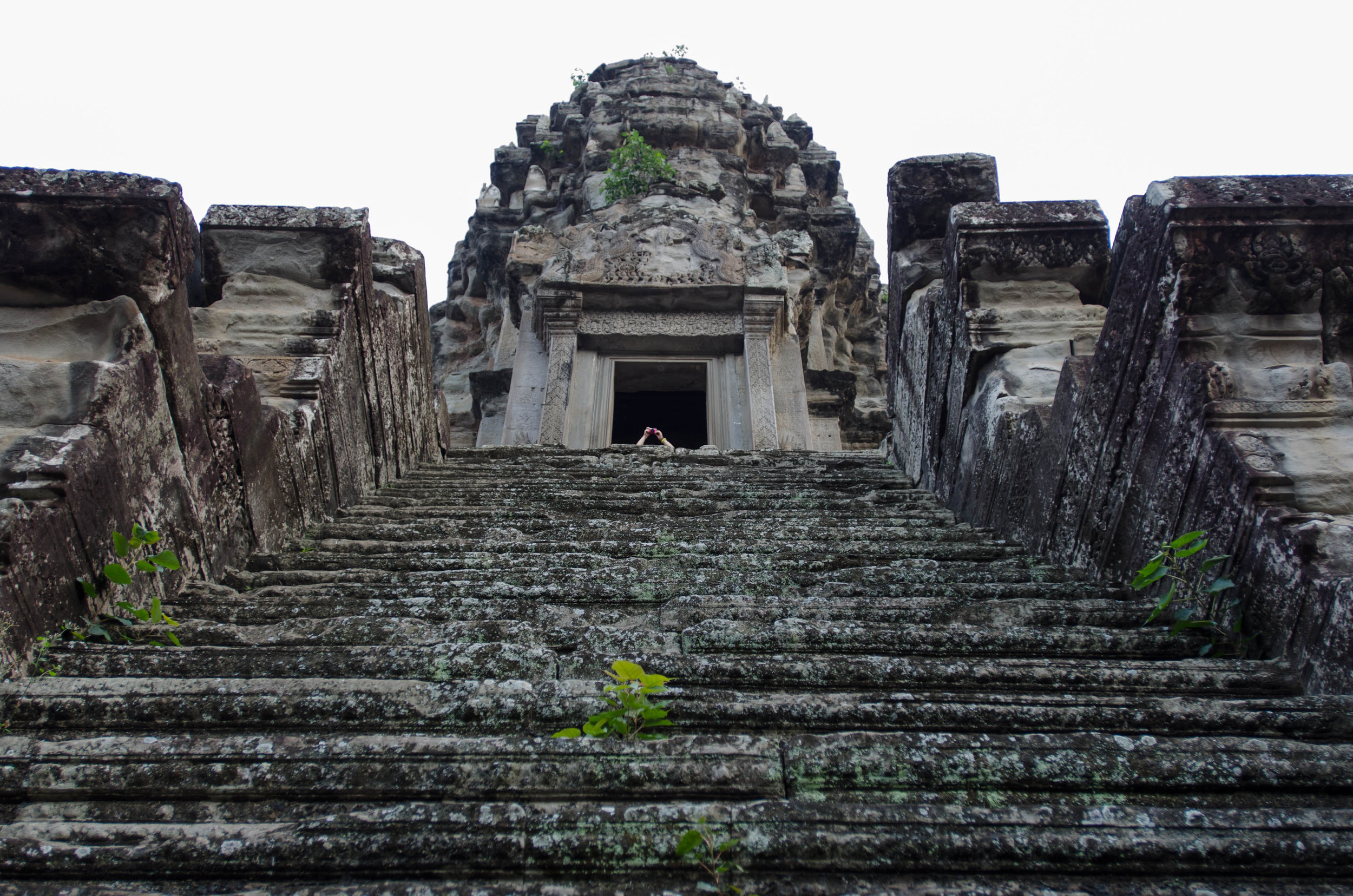
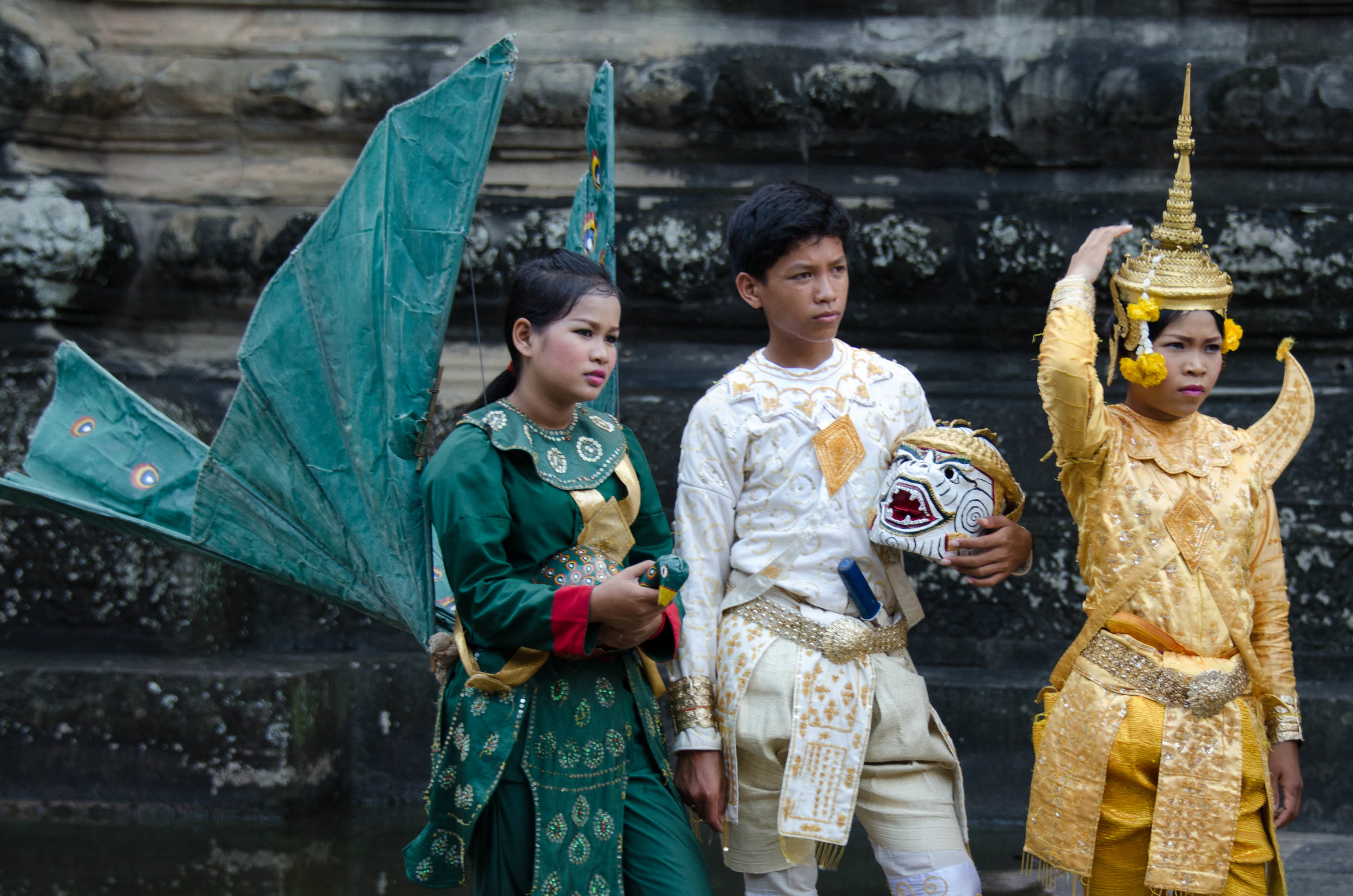
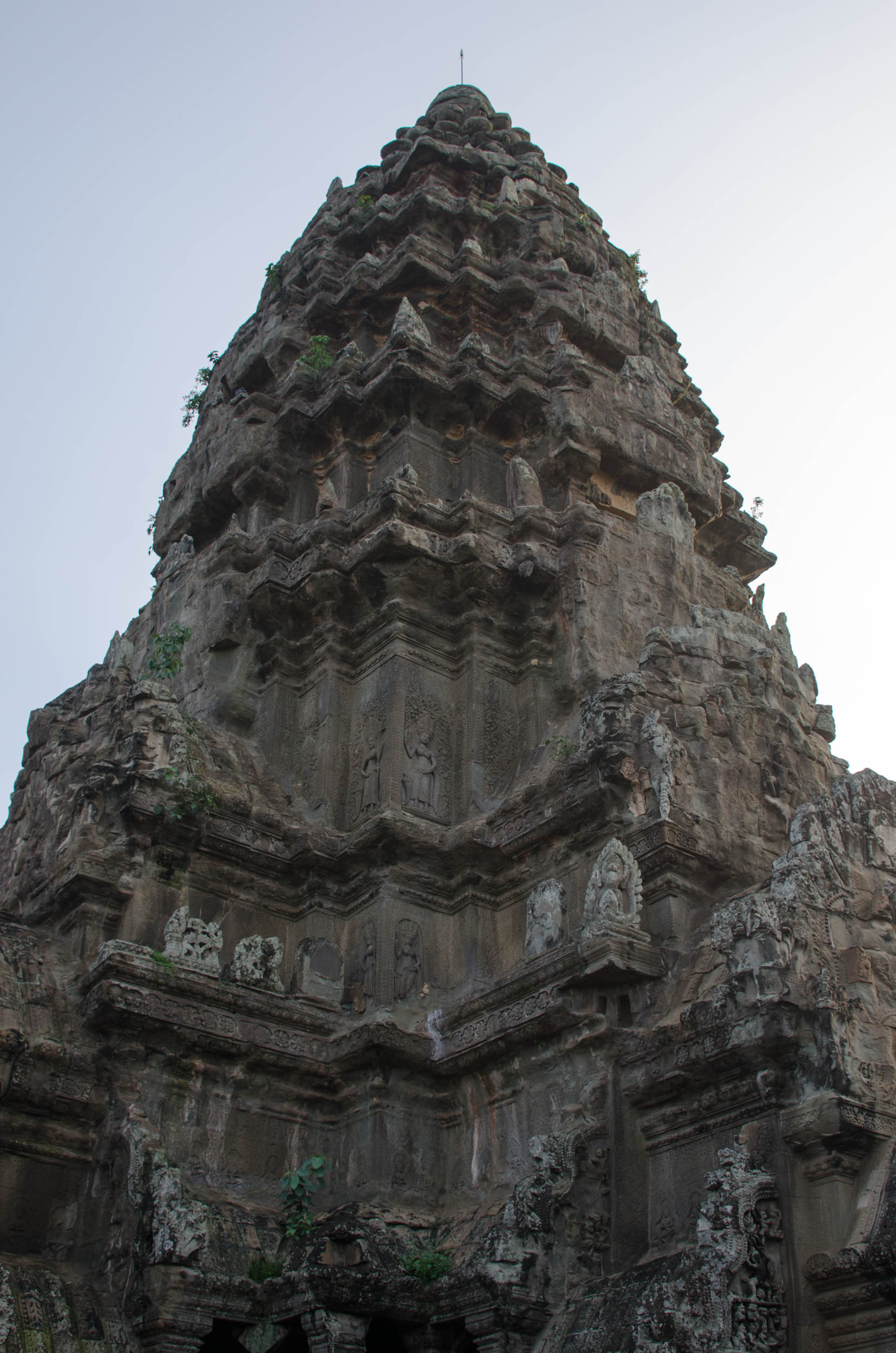
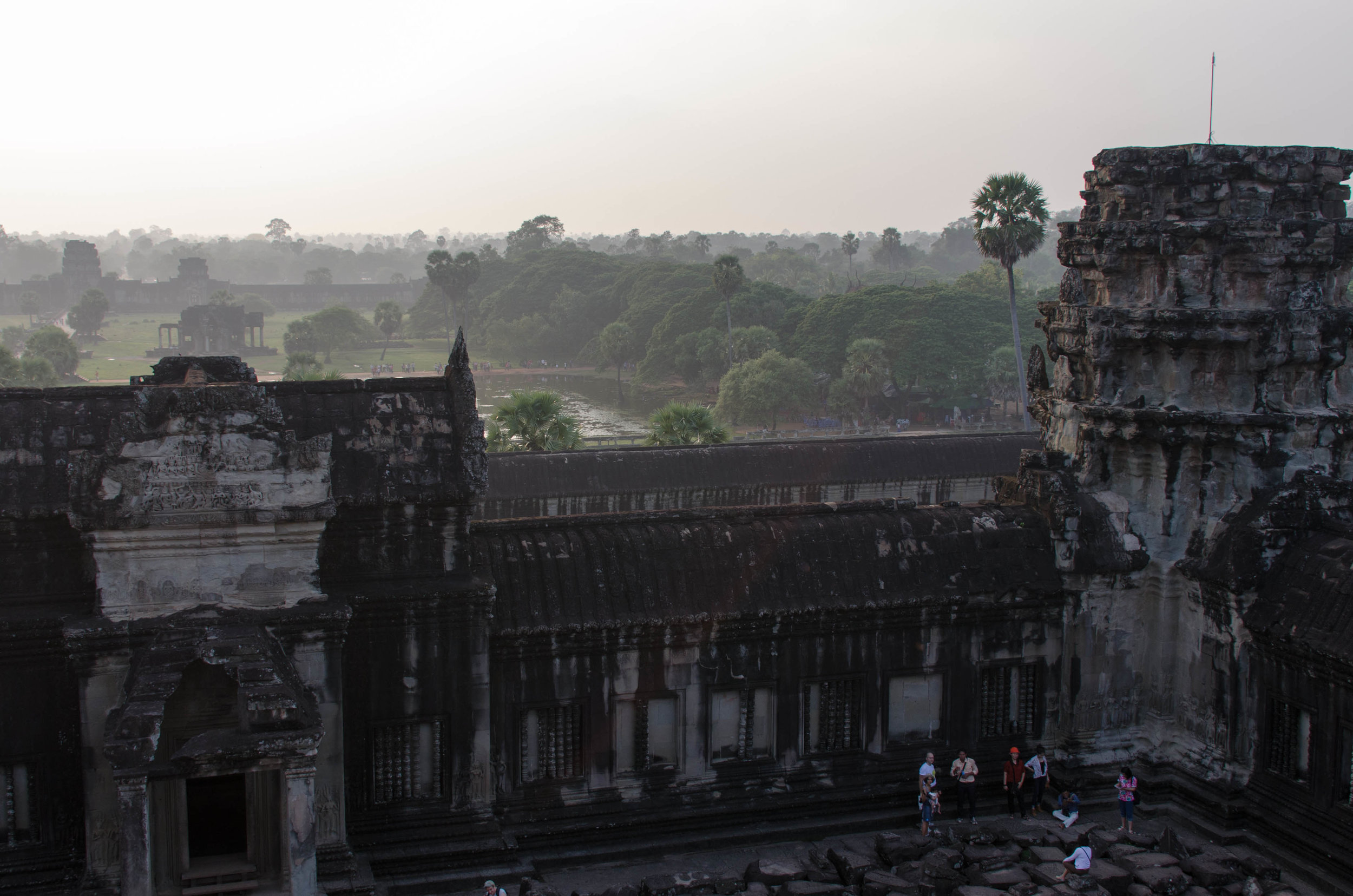
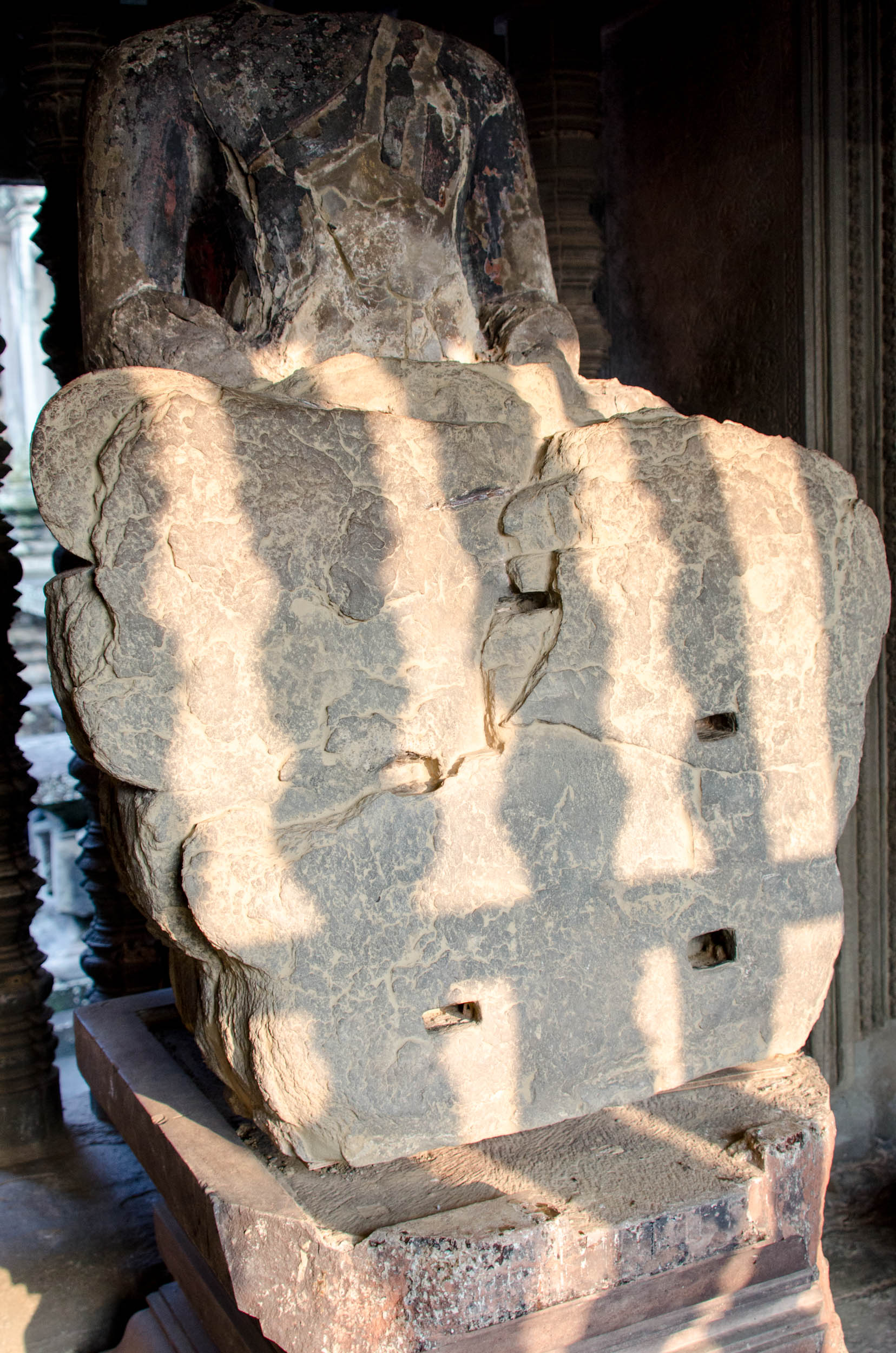
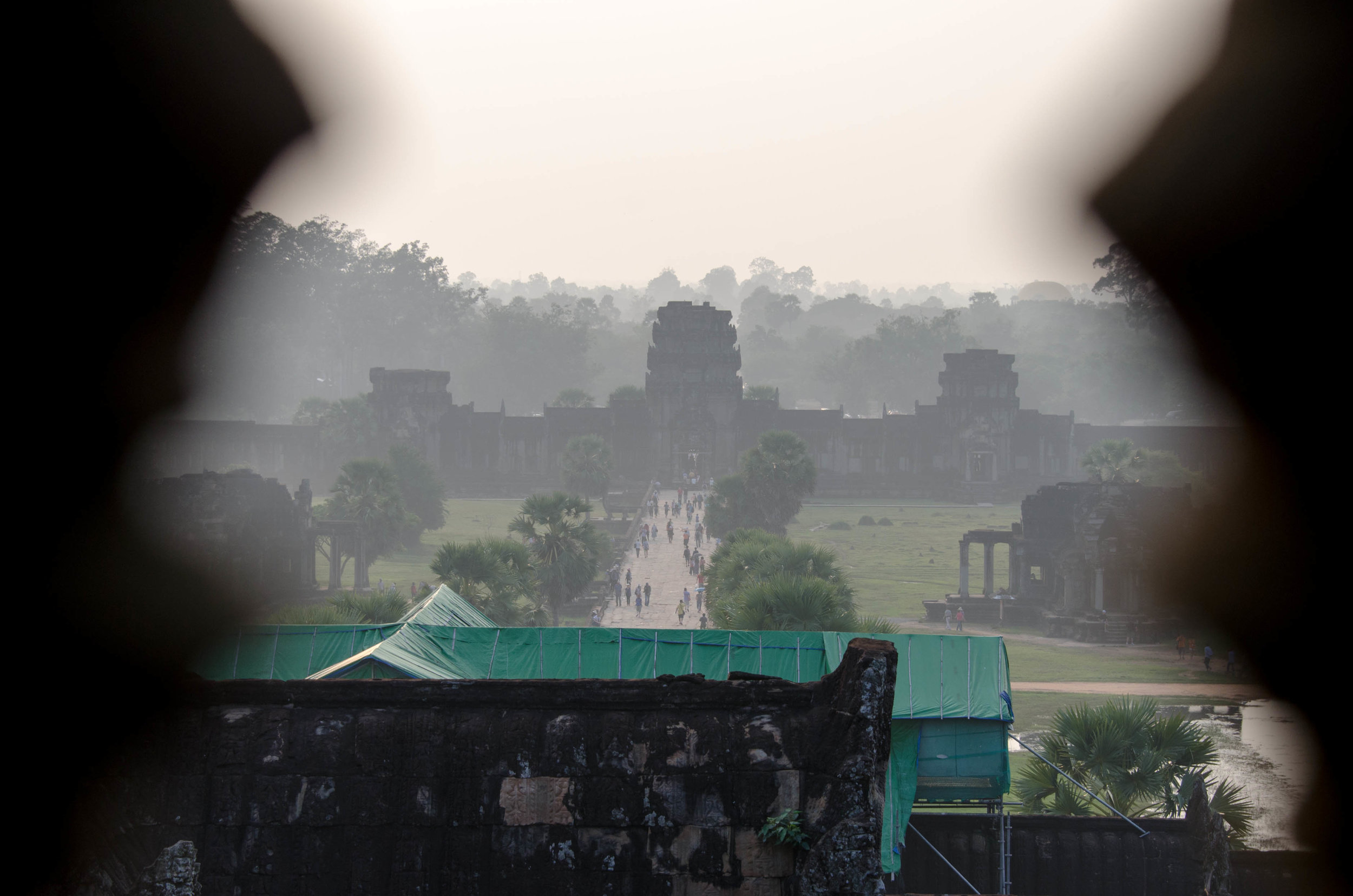
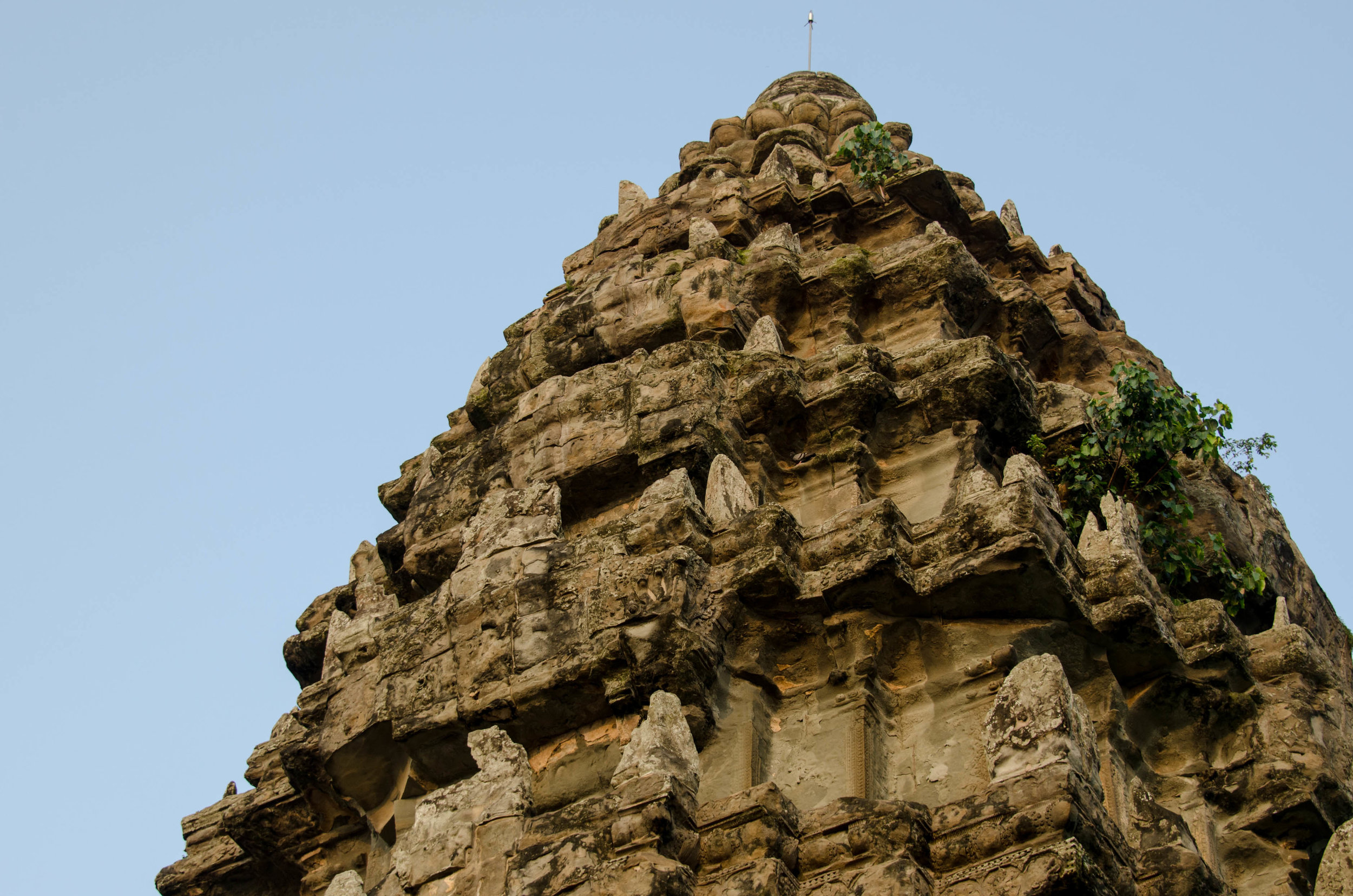
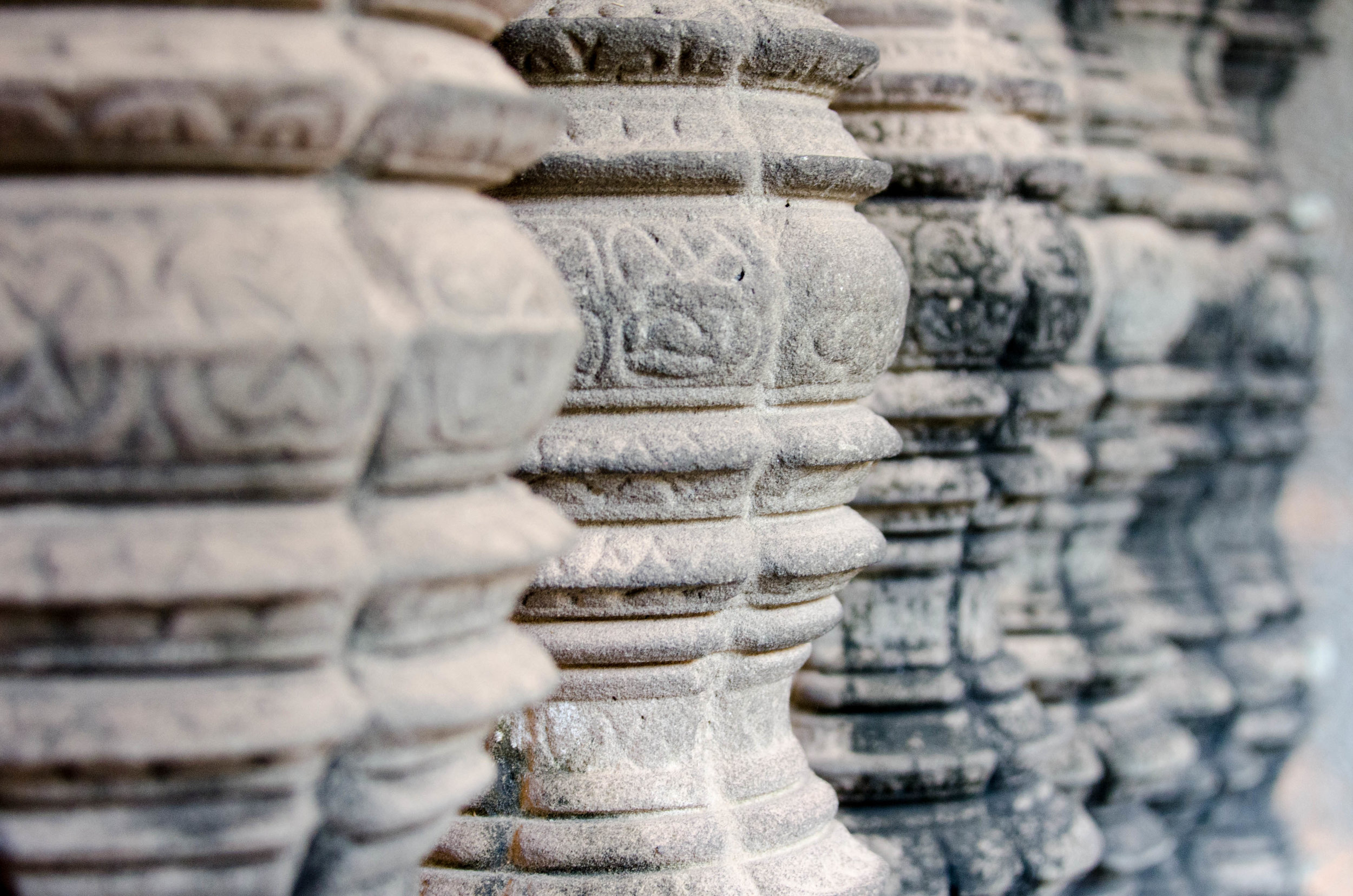
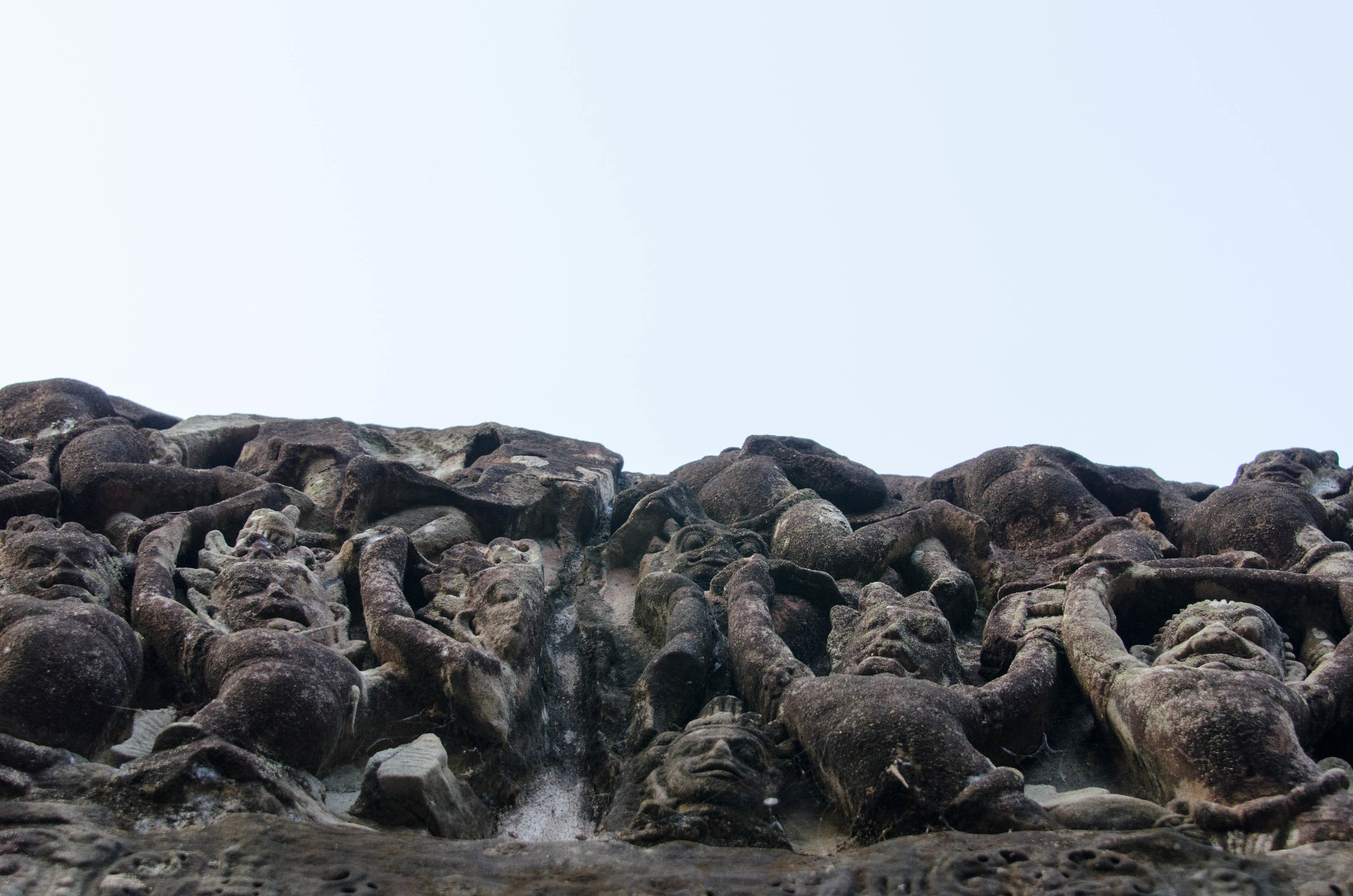
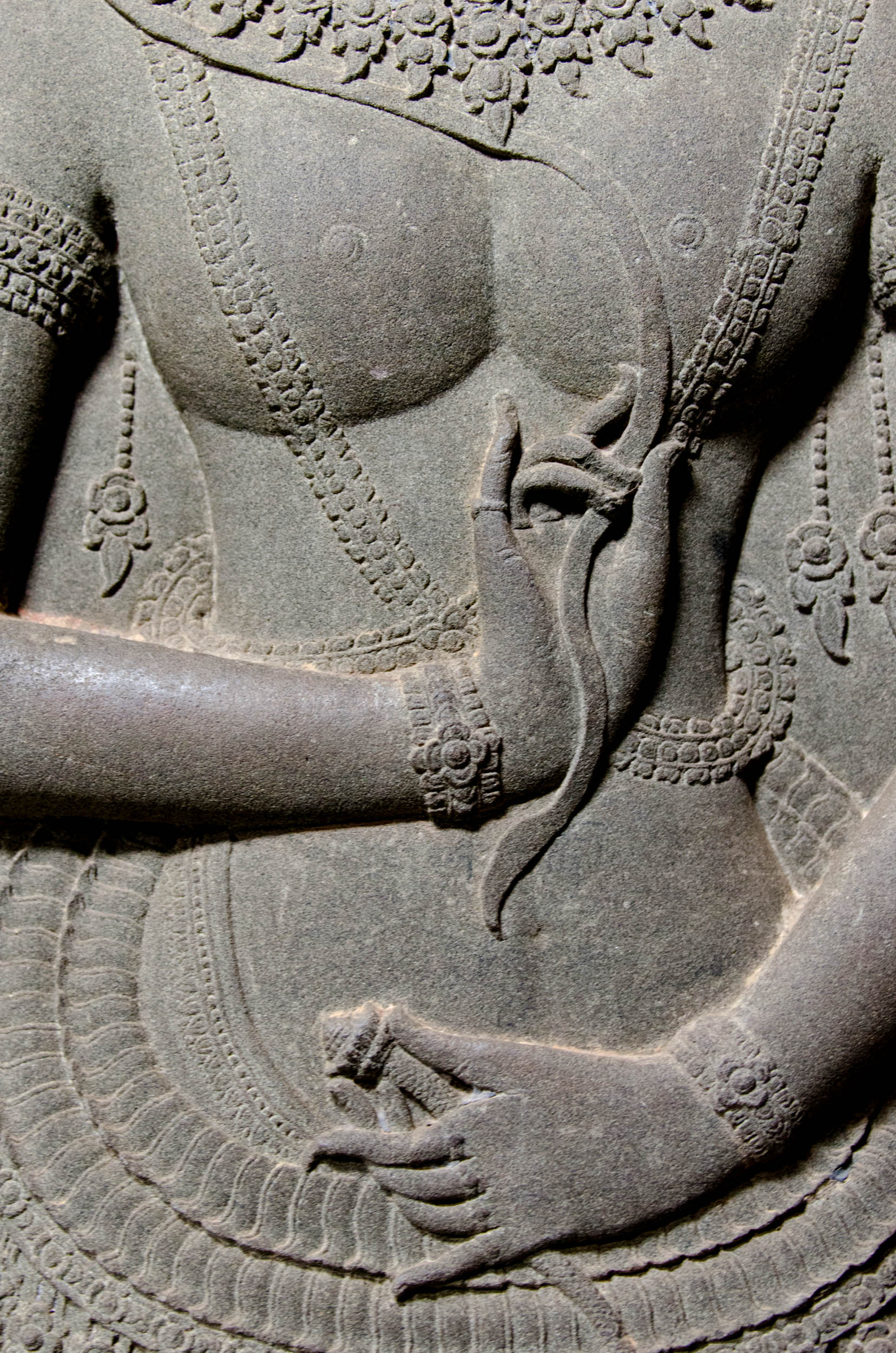
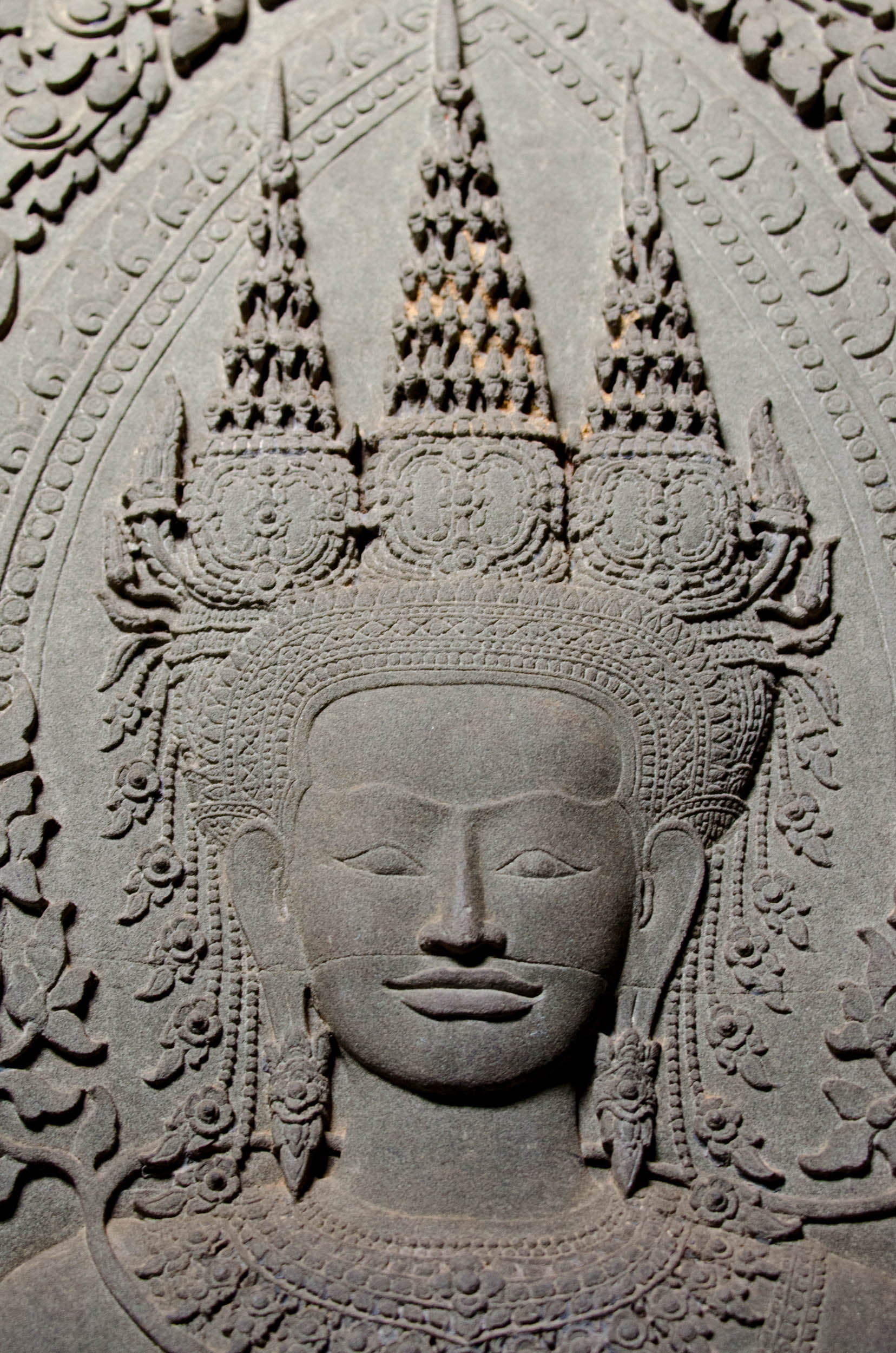
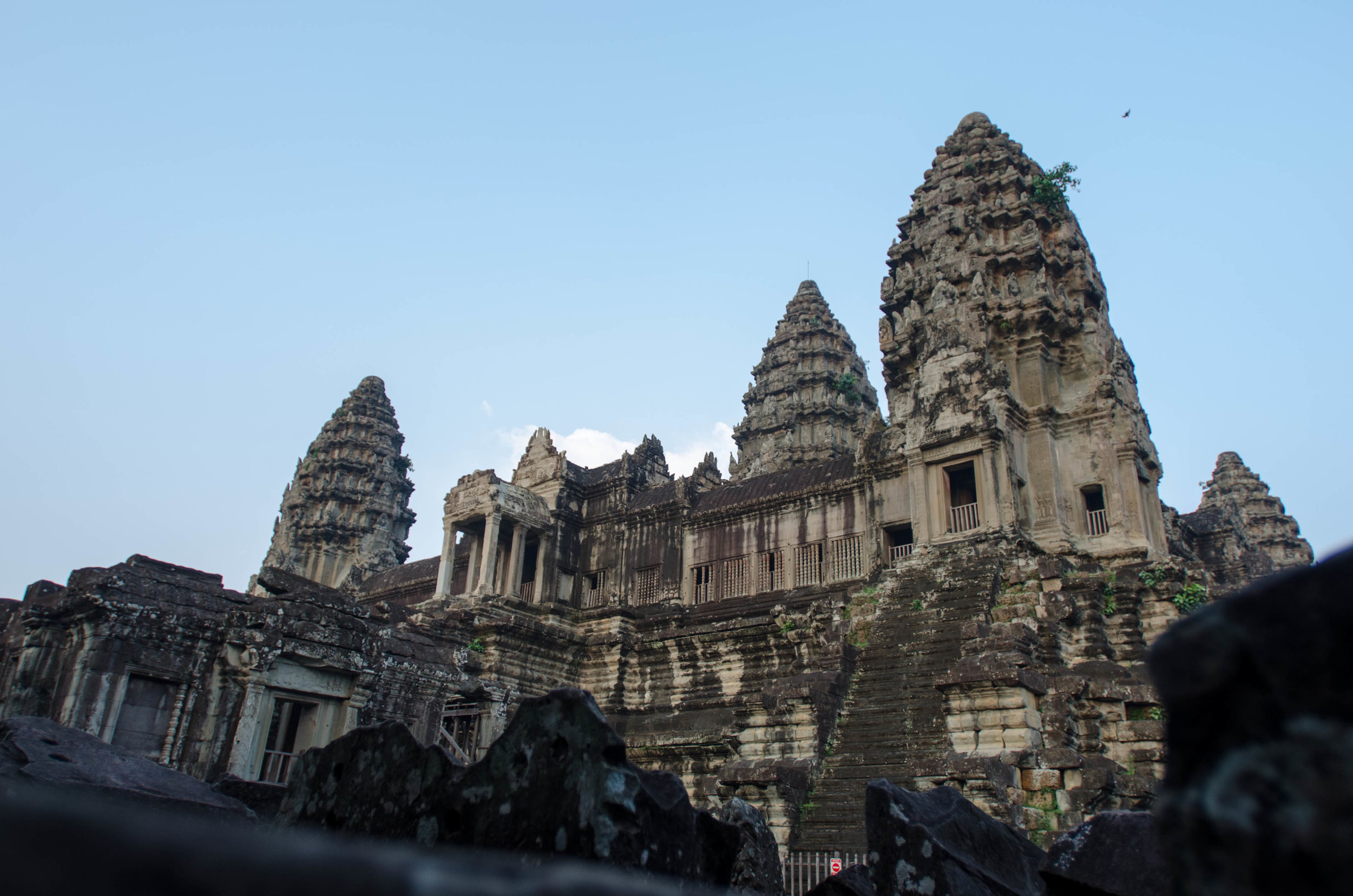
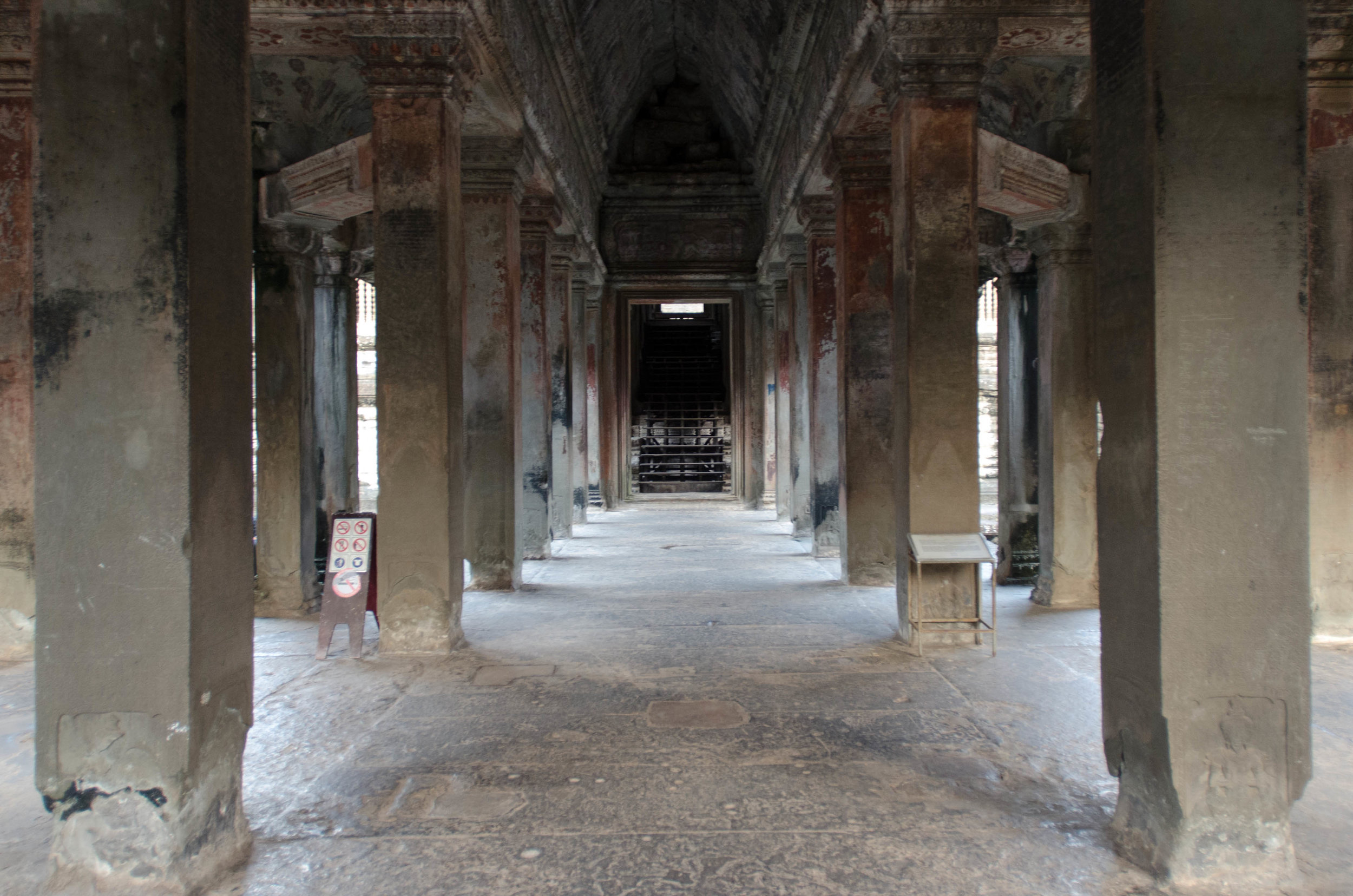
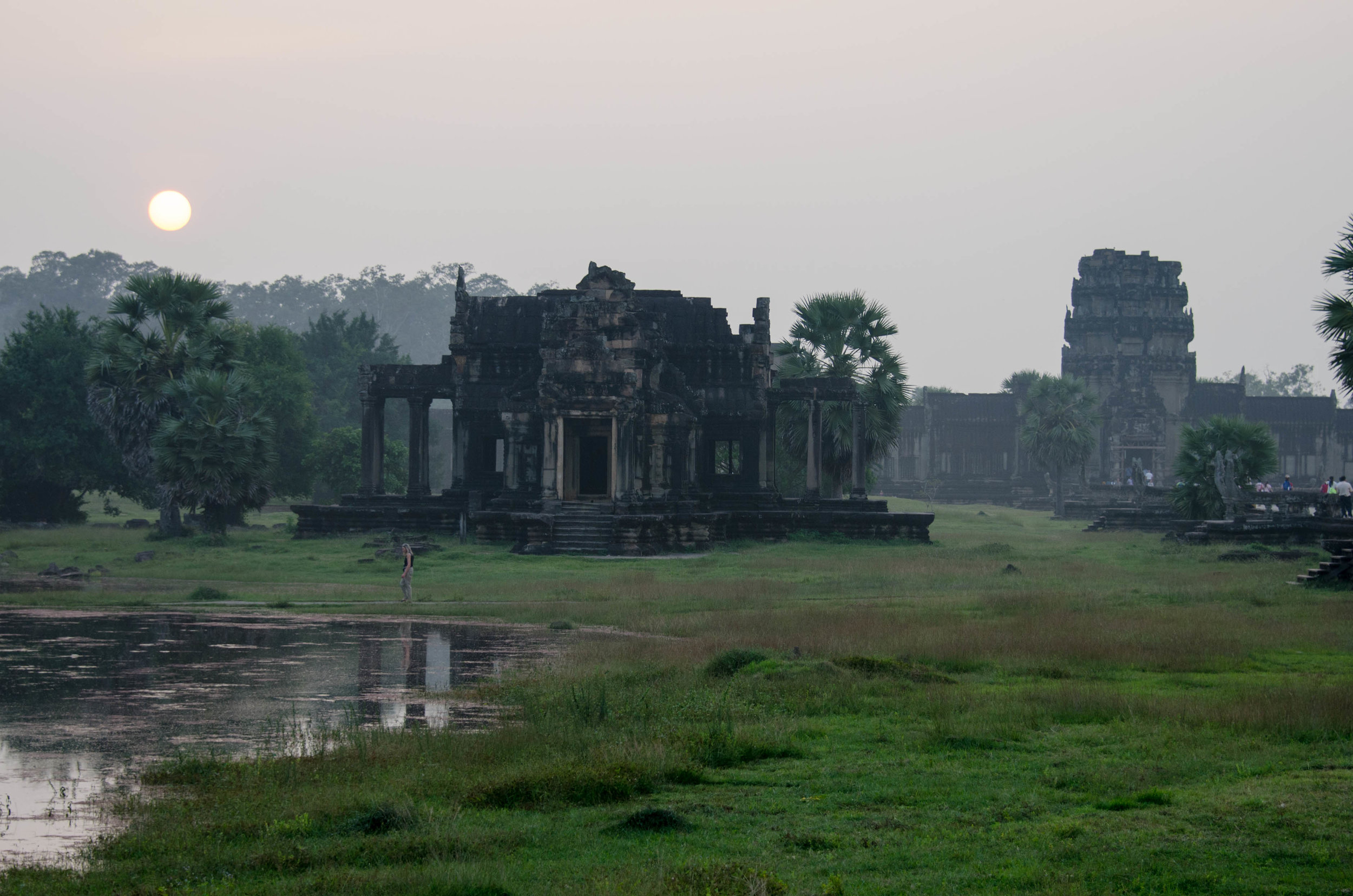
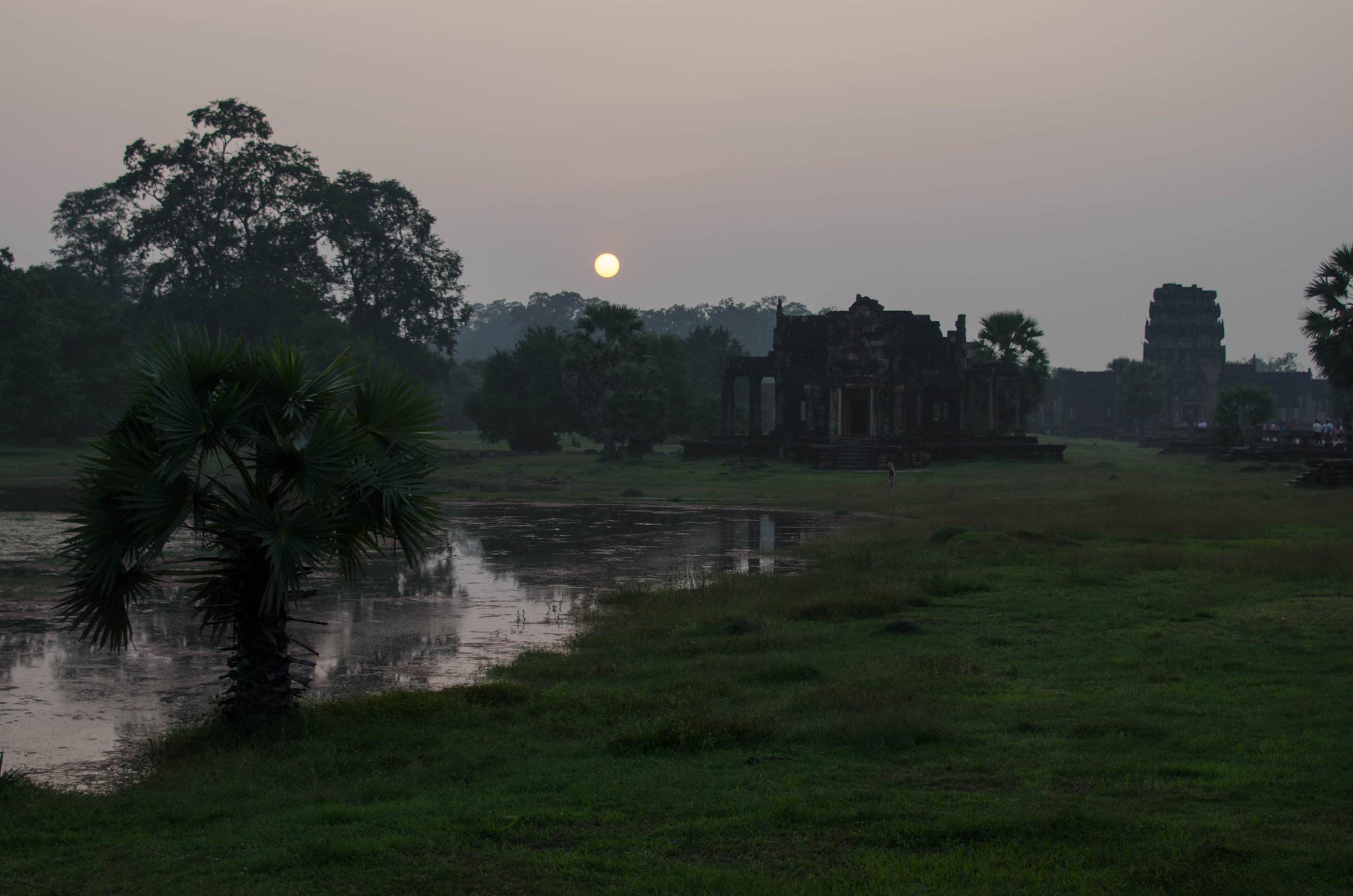
Did you know that Angkor Wat is the largest Hindu temple complex in the world? I didn't. I also didn't know that it was dedicated to Vishnu (a beautifully preserved statue is in one of the main entrances to the complex, as you can see above), the Hindu god also known as the 'preserver of the universe.' I refused to buy a book on Angkor Wat this time around, because I have a feeling I bought exact same one four years ago, and it is currently sitting on one of my shelves at my parents' home- so I had to rely on the internets to jog my memory of the history of the complex. According to Wikipedia, much of the construction (by King Suryavarman II in the early 12th century) is based around Hindu mythology but in the late 13th century, it moved to Buddhism, as it currently stands today. Not to get super religious on y'all, but I think it's fascinating that a Hindu temple can change to be a Buddhist one. Does that happen with other religious sites without war breaking out? I tried several times to get into a World Religions class in college, but it would always fill up before I had a chance to register. I'm anxious to read more about Buddhism and Hinduism (especially before we hit India) so if you have any suggestions, please let me know!
Monkeys roamed outside of the temple, trying to sneak water and plastic bags away from tourists. Inside of the temple, people were everywhere. The most frustrating part is wondering what it is going to be like in another four years… I shudder just thinking about it. I don't remember the top of the temple being open for visitors when Jane and I were there last, though, and it was fun to see a new view of the complex and have a more intimate visit with the bas relief sculptures when most of the tourists cleared out near closing time.
I was especially drawn to the bas reliefs of the apsaras and devatas. These dancing girls or nymphs are derived from Indian mythology- again, I love how an Indian myth was incorporated into Khmer architecture.
On our way out of the temple, a man standing guard in front of an altar asked if I wanted to bow in front of it. "For good luck!" he called after me. For good luck AND a dollar, I wanted to respond. Instead, I held up both wrists clad with good luck strings and said "I have lots of good luck already!" and he smiled. I was relieved and glad to walk back through an almost empty temple, mostly so Andrew could have a feel for what it was like. Hoards of tourists distract me. (I'm working on this) I don't like how much it takes away from the immensity and/or beauty of a place when people are bumping into you or yelling out to their companions. In the halls and standing outside the walls sans crowd, it's easier to feel small and in awe of what kind of work went into the structure so long ago, and how well it's held up over time.
Outside of the complex, we were immediately confronted by a 10 (maybe 12?) year old boy selling post-cards with a t-shirt on that read "I could be your son." "Where did you get that shirt?" I asked him, laughing at his unique um, marketing skills? He shrugged, yet with a smile in his eyes I could tell he was little amused that I was calling him out on wearing it to a tourist site to sell postcards. "Shouldn't you be playing or studying or something right now?" I asked him. "I studied this morning. You want postcards?" He responded, possibly rolling his eyes. I have to admit, four years ago, children were EVERYWHERE begging for money, selling bracelets, drawing pictures for you in hopes of a tip. Now, the only children you'll see are strictly selling either post-cards or bracelets. It felt like progress, even though they obviously shouldn't be selling anything at all…
One child vendor worked the "downtown" streets of Siem Reap selling bracelets and roses. Her name is Linda, or Srey Neang (I might have the spelling wrong on her Cambodian name) and took a liking to Andre, and then me and Andrew. Linda is 12 years old, speaks English really well, and has more spunk than any 12 year old I've ever met. She was out every night, and would usually spot us eating and come up to our table, not asking if we wanted to buy a bracelet, but instead would chat with us and more likely than not, call Andre out on his late night antics at Angkor What? bar. Over the four days we chatted with her, we learned that she lives with her mother, grandmother, and sister. Her mother sells mangoes. Her father died, though we're not sure when or how. She wants to be a teacher when she grows up, and sadly, her friend was ran into by a car while he was biking home one of the days we were there and did not survive. To say our hearts melted when she told us was an understatement.
Again, I wrestled with the "Do I break down and buy a bracelet (or her whole basket of bracelets) or not?" conundrum. I didn't. She didn't seem to mind, and was content playing with my hair and hugging on me, which was sweet, even though part of me felt like an asshole for not "helping her out" even though in the back of my mind I know it's not necessarily helping her at all… Or would it be? See… It's hard. What would you do? My concerns were calmed seeing how well Linda was looked after. If she dropped a bracelet, a waitress at the nearest restaurant would come over and pick it up for her, and they rarely shooed her away from tables when she was chatting with us or trying to sell to others. One night, a policeman snuck up on her and took her roses out of her basket. Andrew and I felt terrible we didn't see him in time to warn her to hide. She told us not to worry, that he would give them back to her an hour later.
